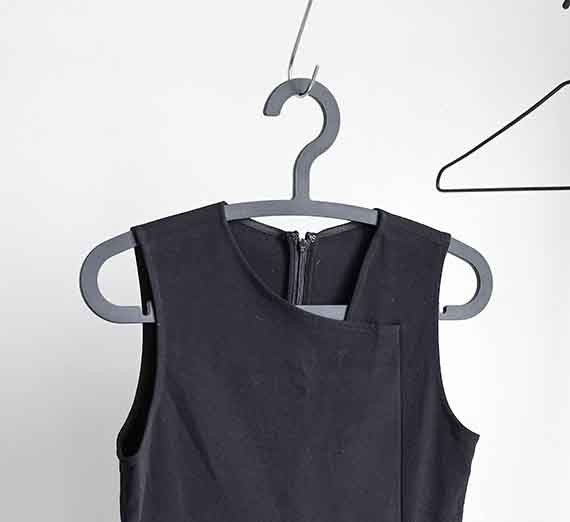Gonzaga, EWU Present 'What Were You Wearing?' Survivor Art Installation - through April 27
Friday, April 27, 2018

SPOKANE, Wash. -- For Sexual Assault Awareness Month, Gonzaga University and Eastern Washington University are collaborating to present a survivor art installation titled, "What Were You Wearing?" The installation will be in Gonzaga's Hemmingson Center Rotunda from April 9-13, and at EWU's John F. Kennedy Memorial Library, Room M-17, April 23-27.
The installation, a collection of re-created outfits and descriptions from survivors of sexual assault, is intended to address the issues of sexual violence and victim-blaming. The descriptions were gathered from sexual assault survivors at colleges and universities across the country. Presented at other schools since 2013, the exhibition confronts the myth that one's clothing somehow caused or contributed to a sexual assault. The installation poses the question: What enabled us as individuals and as a society to ask, "What Were You Wearing?" in the first place?
The installation's concept was developed in 2013 by health educators Mary Wyandt-Hiebert, Ph.D., director of RESPECT at the University of Arkansas, and Jen Brockman, a Gonzaga alumna who directs the Sexual Assault Prevention and Education Center at the University of Kansas. The women were inspired to create the installation by the poem, "What I Was Wearing" (2005) written by Mary Simmerling, Ph.D., an assistant professor of Research Integrity in Medicine at Weill Cornell Medical College.
"I love that my Zag family is hosting the installation," said Brockman, who earned a master's degree in organizational leadership at Gonzaga in 2009. "The installation is about centering the voices of those impacted by violence and challenging the community to have much-needed critical conversations on gender-based violence."
Erin Tovey, health educator at Gonzaga's Center for Cura Personalis, said organizers hope that survivors who experience the installation feel heard, validated, believed, and know that the assault was not their fault, and that others who experience the installation have a greater understanding of the issue of sexual assault and the myths that surround it.
"The hope is that when people walk through the installation they will see themselves reflected not only in the clothing but also in the stories presented and realize this is not someone else's issue, this is everyone's issue," Tovey said.
For more information, please contact Gonzaga's Center for Cura Personalis via email: ccp@gonzaga.edu.